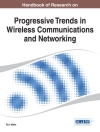Optical information and data transm ISSIOn has been an integral part of the economic life for many years. The demand for ever increasing transmission rates, a high horizon of expectations, and the expansion of pan-European networks led to a boom in glass fiber technologies. Using the physical properties of glass fibers for transmitting high data rates while simultaneously bridging long distances is the main objective here. As a result of this development, the technical and economical allocation of the so-called ‘last mile’ and short-distance, in-house transmission to the subscriber’s desk inside a building has gained much significance. Existing copper networks, whose utilization ratio is constantly improved by technical upgrading, are used here today. ‘POF’ or ‘Polymer Optical Fiber’ now provides us with another interesting new and economical transmission element for this particular field of applications. While the technology has already been developed in the seventies, no economical system solutions existed until late in the nineties. But now that transmitter and receiver modules in the visible wave length range (400-800 nm) are available at reasonable prices, the situation is different. The first technical and economical breakthrough was made in the automotive industry in 1998 with the D2B, and with Most in the year 2000 respectively. The first optical fiber systems are now successfully used in high comfort, up-market car models. Providing fast and safe connections is one of NEXANS’s main objectives.
Werner Daum & Jurgen Krauser
POF – Polymer Optical Fibers for Data Communication [PDF ebook]
POF – Polymer Optical Fibers for Data Communication [PDF ebook]
Beli ebook ini dan dapatkan 1 lagi PERCUMA!
Bahasa Inggeris ● Format PDF ● ISBN 9783662048610 ● Penerbit Springer Berlin Heidelberg ● Diterbitkan 2013 ● Muat turun 3 kali ● Mata wang EUR ● ID 6341903 ● Salin perlindungan Adobe DRM
Memerlukan pembaca ebook yang mampu DRM












